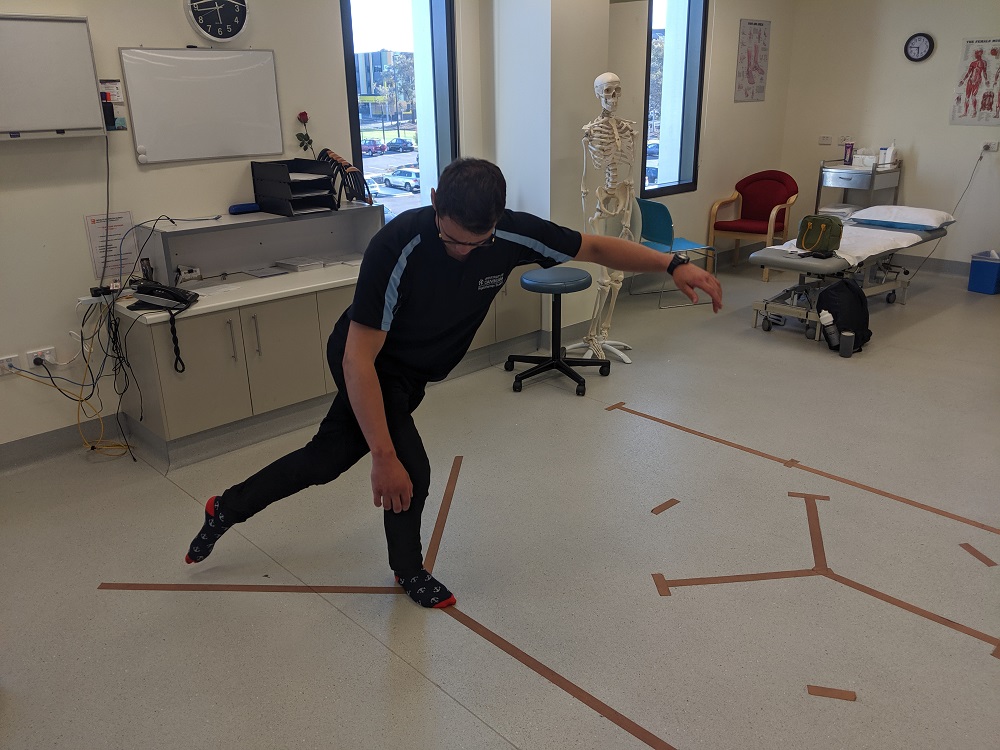Suzanne Lazaroo
25 February 2020: In a new study from the University of Canberra, Faculty of Health researchers will investigate why many sufferers of Greater Trochanteric Pain Syndrome (GTPS) aren’t recovering as fast as expected – and whether there is a connection to a lack of balance and control.
Previously called ‘bursitis’, GTPS refers to often debilitating pain experienced in the outside of the upper thigh area.
It’s usually caused by gluteal tendinopathy, the most common hip tendon injury.
The condition can greatly affect quality of life, causing sleep deprivation and limiting the ability to walk, engage in exercise or physical activity, or remain in full-time employment.

“The study will look at whether people who suffer from GTPS also experience impaired balance and limb control,” said Clinical Assistant Professor of Physiotherapy Dr Angie Fearon.
“We know that with tendonitis in other parts of the body, people do have comparatively poorer proprioception – which means their awareness of where their body is in space is impaired because the tendon is sending inaccurate messages about this to the brain,” she said. “However, there is a lack of research in this area when it comes to GTPS.”
Results from the study will inform current rehabilitation and treatment processes for GTPS.
“GTPS therapy currently focuses on healing and strengthening the tendon. If impaired balance is slowing down recovery, then we will design a rehabilitation strategy with added balance and control exercises,” Dr Fearon said.
Project supervisor Dr Fearon is a world leader in the area of GTPS research. She will be working with Associate Professor of Physiotherapy Dr Jeremy Witchalls, Sports and Exercise Physiotherapist Jack Mest and Bachelor of Physiotherapy (Honours) student Christopher Tuck.
The researchers are looking for study participants over the age of 18, who are currently living with GTPS.

The study will use the University’s BERTEC and AMEDA balance assessment and proprioception systems, the most advanced, state-of-the-art research equipment of their kind on the planet.
Participants will also have their hip and knee strength assessed, and take part in the Y-Balance test, which determines balance and control on a single leg when reaching in three different directions.
“This research has the potential to alleviate the suffering of thousands of people, and improve their quality of life,” Dr Fearon said.
Prospective participants can click on this link for more information and to sign up, or email Angie.Fearon@canberra.edu.au.


